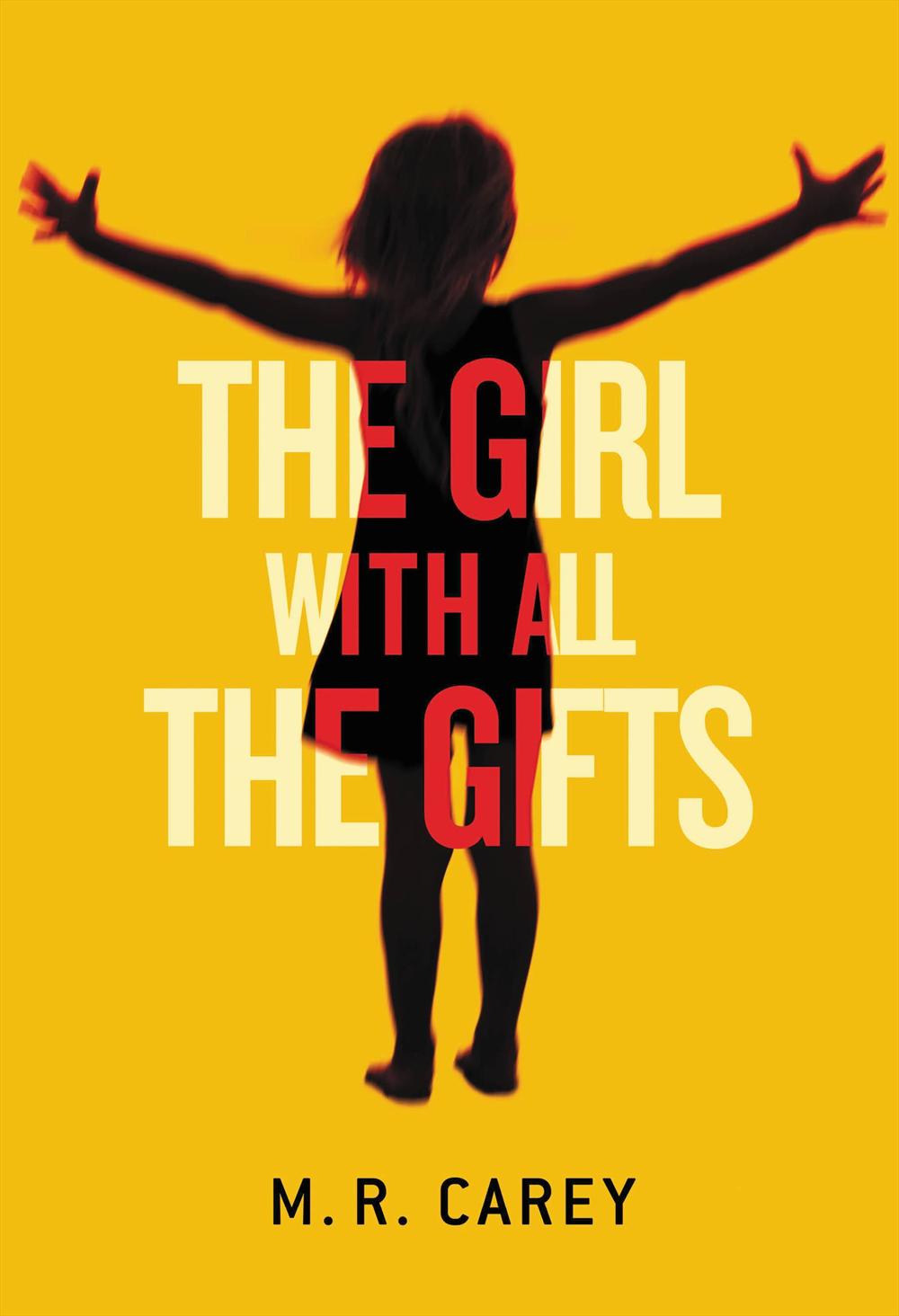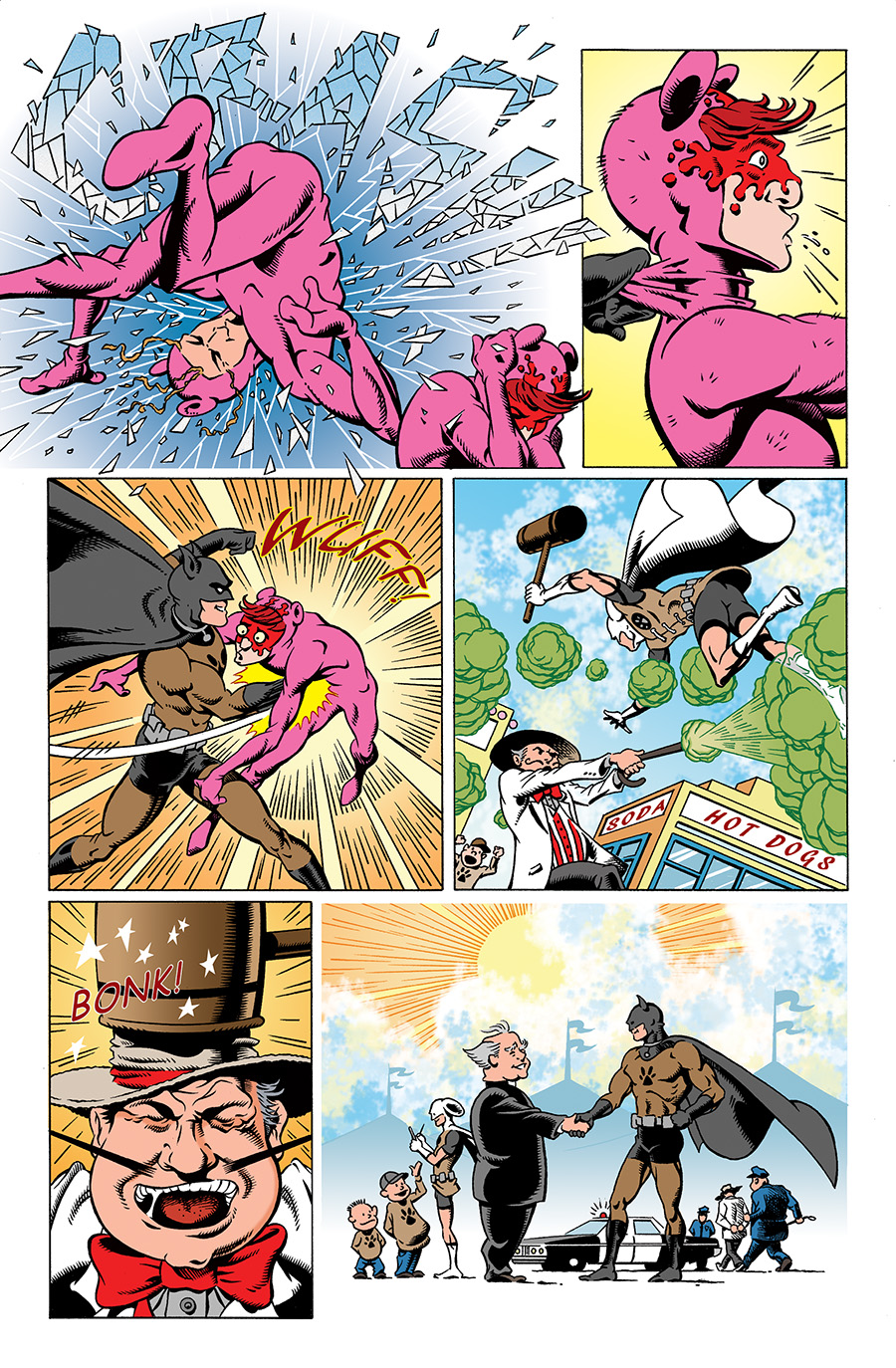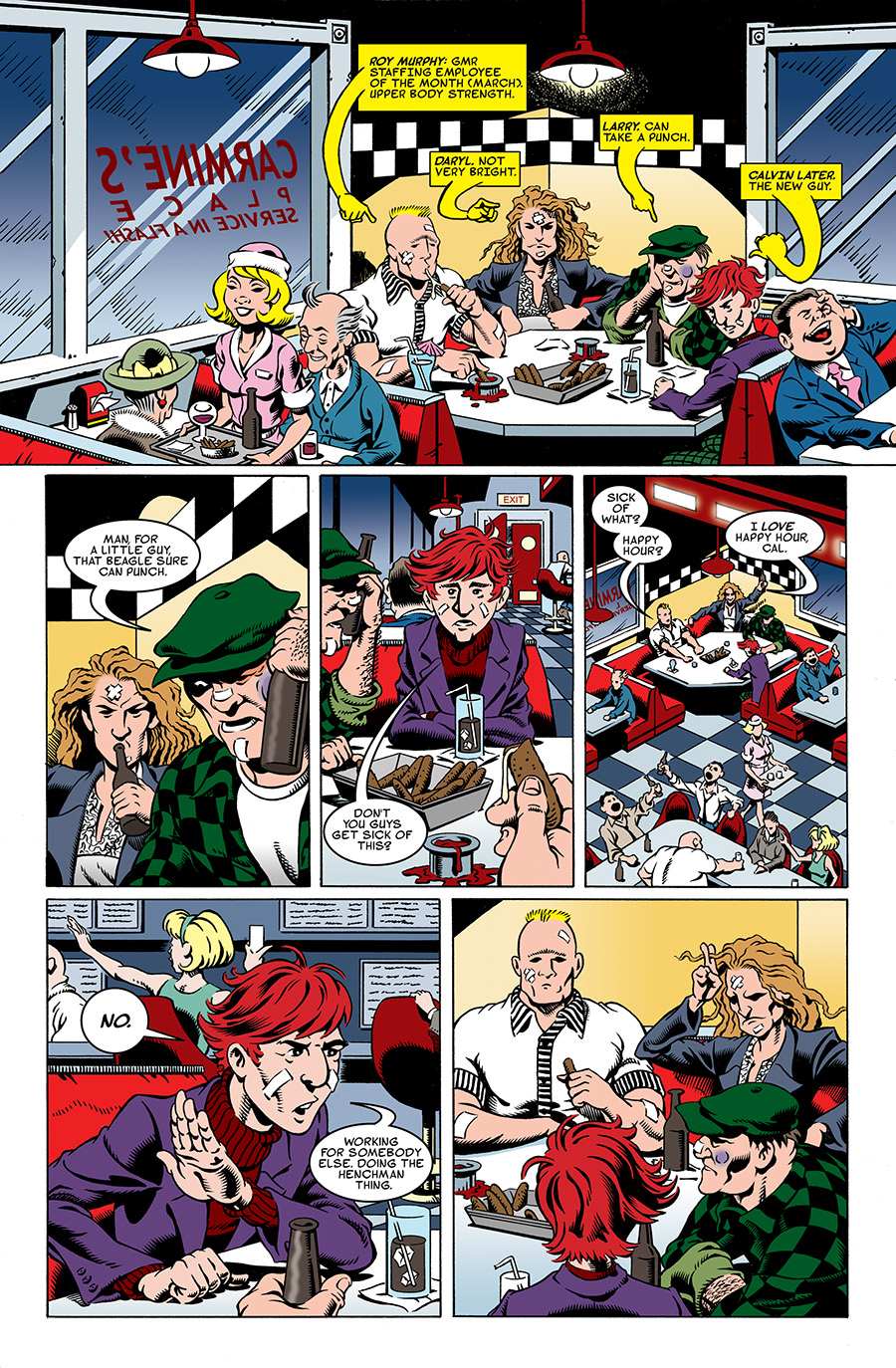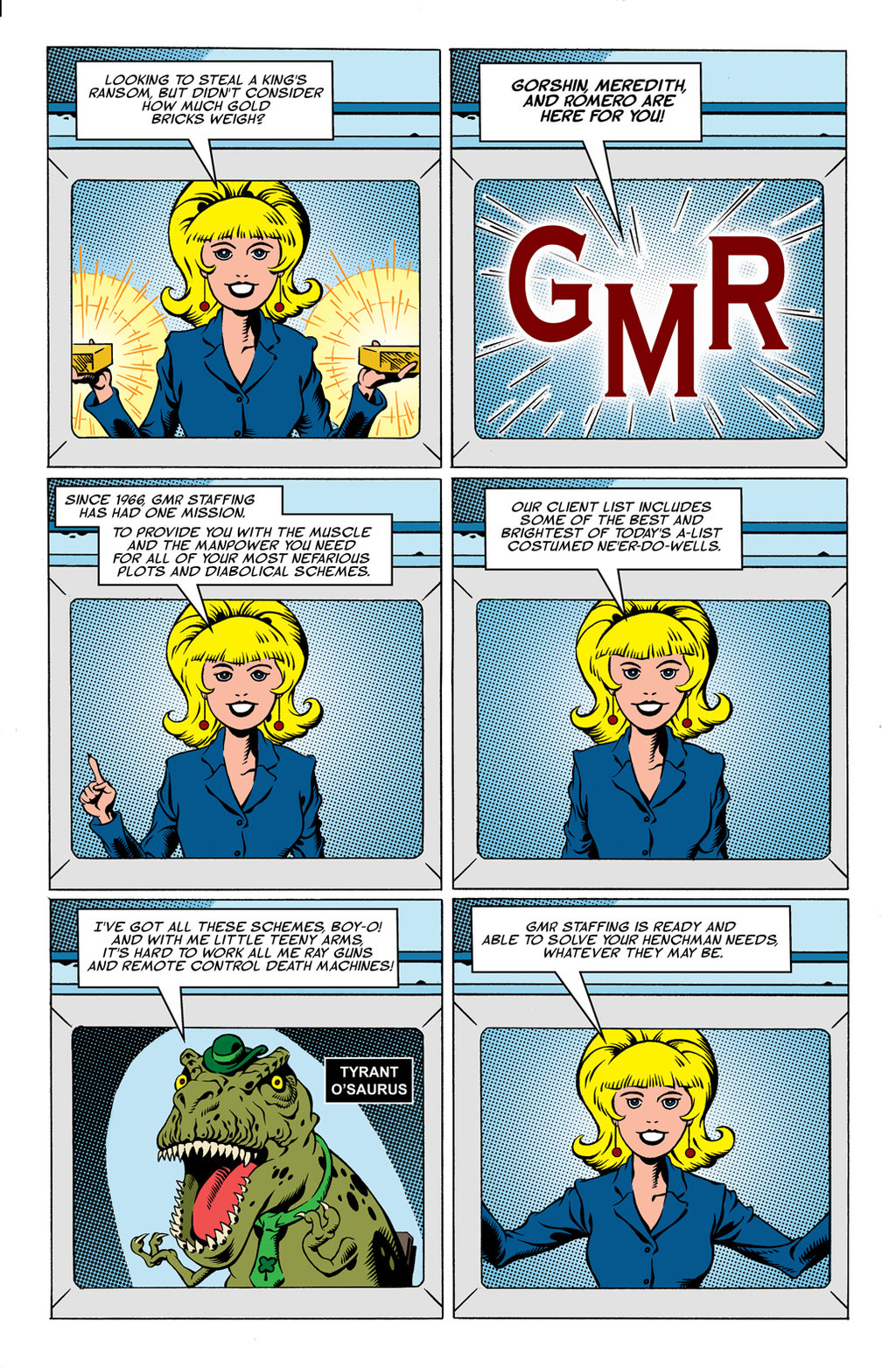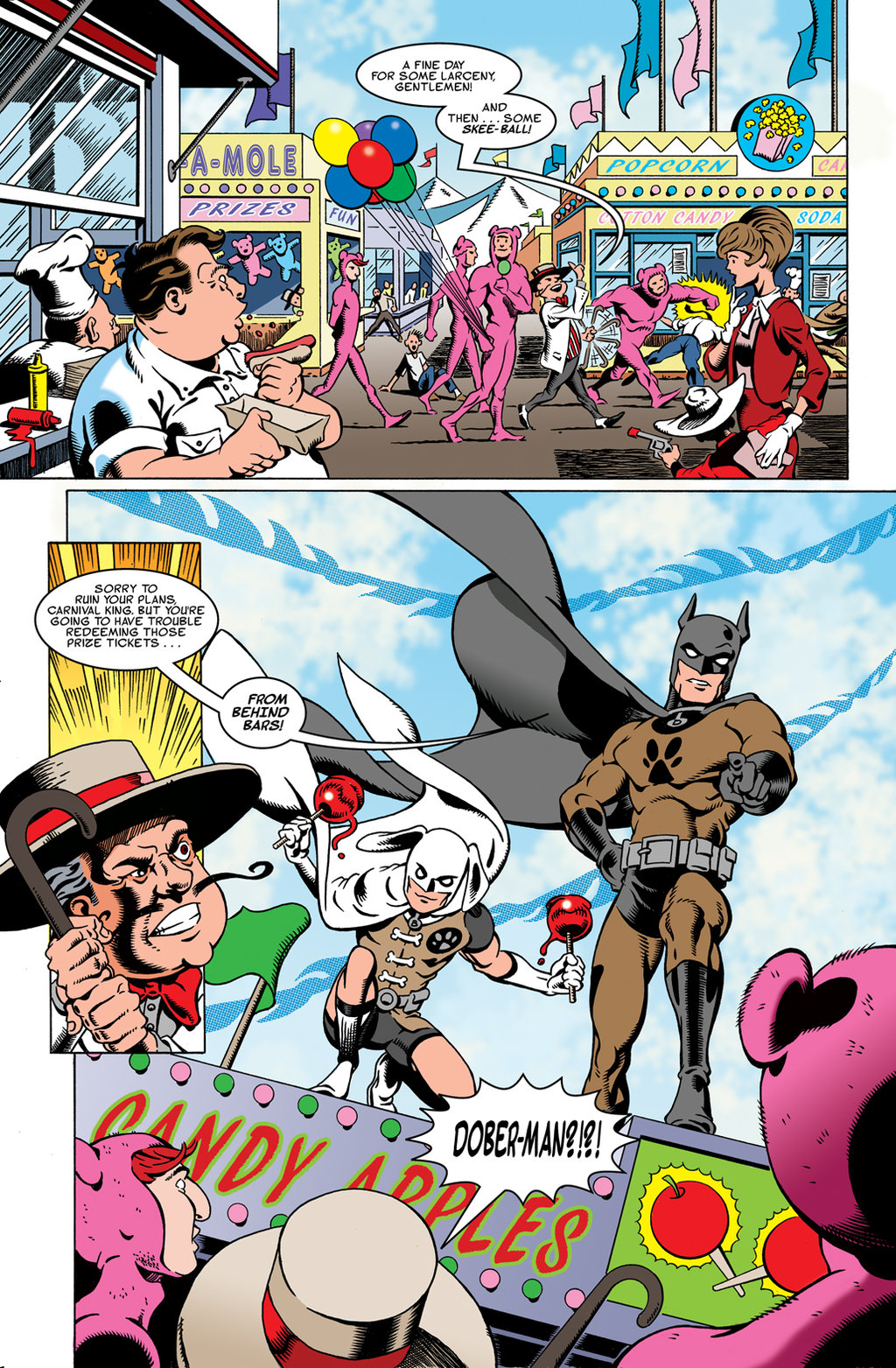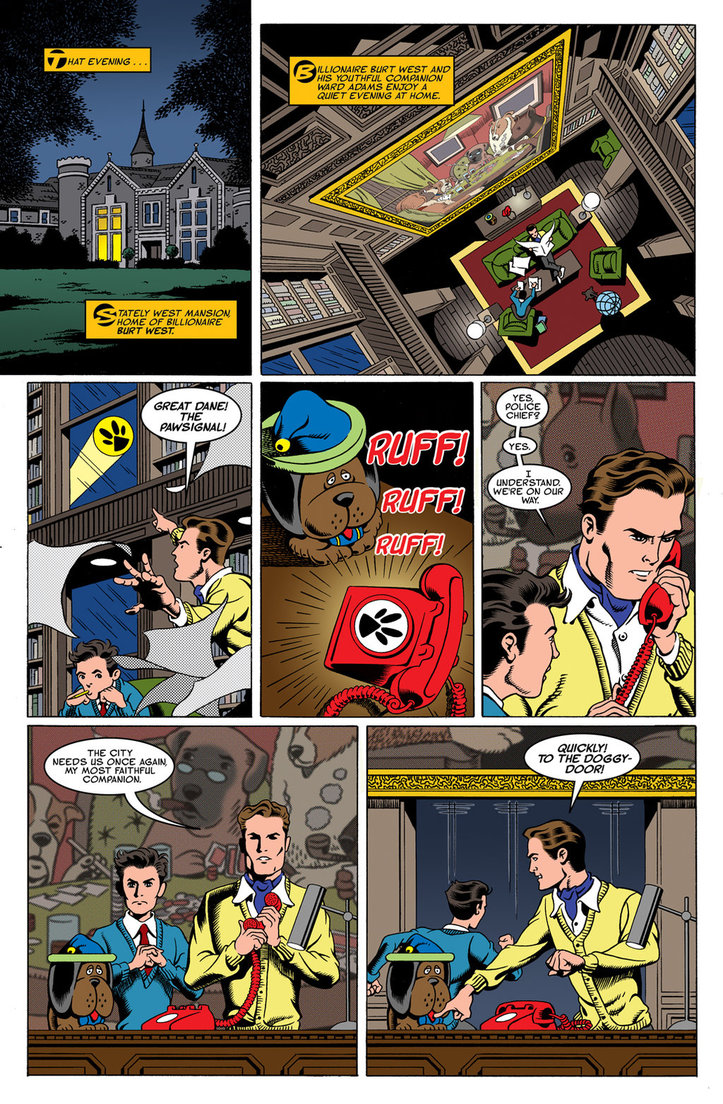That's right: not only did we revamp the entire Wirecutter website with a cool new look and fancy mobile friendliness, but I've also published my first official guide for them! Check it out:
blog
Thom Dunn is a Boston-based writer, musician, and utterly terrible dancer. He is the singer/guitarist for the indie rock/power-pop the Roland High Life, as well as a staff writer for the New York Times’ Wirecutter and a regular contributor at BoingBoing.net. Thom enjoys Oxford commas, metaphysics, and romantic clichés (especially when they involve whiskey), and he firmly believes that Journey's "Don't Stop Believing" is the single greatest atrocity committed against mankind. He is a graduate of Clarion Writer's Workshop at UCSD ('13) & Emerson College ('08).
Holy Recaps, Batman!
Some of you may have caught the first episode of Gotham last night, the police-procedural-cum-superhero-origin-show about the early days of Gotham City before Bruce Wayne became Batman. As an avid fan of both noir and comic books, I've been looking forward to this show for a while, and I'm excited to announce that I will be handling the weekly Gotham recaps / reviews for Tor.
My overview of the pilot episode is already up (though admittedly, it's rather long and overly-detailed — not unlike the tepid episode itself), so please stop by and add your comments, then join us in the weeks to come!
In the meantime, to tide you over to next week's episode, here's a supercut of every instance of Bruce Wayne's parents being murdered on television and film:
GUARDIANS OF THE GALAXY Review! (plus awesome Star-Lord rap song)
I had the pleasure of seeing an advanced screening of Guardians of the Galaxy last week which was, well, everything I dreamed it would be from the very first preview I read of the first issue in 2008. You can read my full review over on Tor.com (with whited-out spoilers, for those of you worried about those kinds of things).
You can also listen to this totally sweet Star-Lord jam by nerd-rapper extraordinaire Adam WarRock (although I personally would have preferred it if he had sampled from "Hooked on Feeling" or one of the other delightfully anachronistic songs from the movie soundtrack like he did for his Firefly mixtape, but that's a minor gripe).
Review: TRANSHUMAN by Jonathan Hickman
In Transhuman, writer Jonathan Hickman
uses JM Ringuet's gorgeous artwork to tell an original story about the rise of Transhumanism as a corporate pissing match, and it embodies everything that is wrong with Hickman as a writer.
Don't get me wrong, Hickman is incredibly creative and kind of a mad genius — he's just a terrible storyteller. I've come to accept this fact. Transhuman is told as a "documentary" about the rise of the 3 largest Transhumanist corporations, which I guess is a clever conceit, except (1) why make a fictional documentary as a graphic novel? Why not, ya know, write a screenplay? and (2) the nature of those 60 Minutes-style factual reporting documentary is, by nature, a summary, and therefore not a story. The story is told through interviews with a narrator and the people involved in the story, but they are literally just TELLING the reader what happened. It's almost remarkable that a graphic novel — a medium which is visual by nature — could rely so much on telling and not showing, and therefore breaks one of the cardinal rules of fiction writing.
Sure, there are some interesting characters, and probably some cool dramatic, personal moments between them — namely, the divorced couple who end up working together on the Transhumanist project despite their mutual hatred for one another, who ultimately backstab each other again — but frankly, it's not very interesting to just see someone tell you that. It doesn't matter how witty or clever the commentary and writing is, I want to see it happen, I want to witness their interpersonal relations. If this were a real-life documentary from 50 years from now, and it aired on 60 Minutes or whatever, it would probably be great, because investigative journalism can get away with digging deep and just reciting facts (although I'd argue that most award-winning works of investigative journalism still manage to find a compelling human angle, something for the audience to emotionally engage with that makes them follow the story through to the end). In Transhuman, we just get a bunch of talking heads telling us what already happened, and a narrator / director to steer us away from any unreliable sources. There is literally nothing compelling or human to pull you through the story. There's a clever (albeit overwhelmingly cynical) twist at the end, which I guess is fun. But you can't build a story off a twist.
When Hickman first broke out onto the comics scene, I thought he was fantastic, but the truth is, he's good at creating the ILLUSION of good story telling. Everything he writes is done in summary, with a few cool moments in between to make it feel human. A friend of mine summed it up well as citing the difference between The Lord of the Rings and The Silmarillion — one is a story about characters that we care about, the other is a play-by-play history book, and Hickman writes the latter. I think Hickman would be better off as an idea man, leaving other people to actually execute these epic stories of his. Because the worlds he creates are always unique and fascinating, full of complex politics and otherworldly visions. But saying "HERE'S THIS CRAZY WORLD I CREATED AND THERE ARE THESE GUYS AND THEN THESE TWO FOUGHT AND THEN THIS GUY BETRAYED THIS GIRL AND THEN THIS PERSON WON, THE END" is really not a fun story to read.
I mean, okay, this was a fun moment. But not worth the wait.
"The Girl With All The Gifts": A YA Zombie Book That Will Actually Make You Cry
I read the first 30 pages of The Girl With All The Gifts on the train ride into work one rainy morning, and I'm pretty sure I got choked at least three times in that opening section of the book. Who the hell gets emotional over precocious 10-year-old zombies?
The Girl With All the Gifts
is a new novel by M.R. "Totally Not Mike Carey" Carey. I've been a fan of M.R.'s alter ego for a while now, ever since his run on X-Men: Legacy
and, more recently, his crazy Harry Potter metafiction series The Unwritten
, so even if The Girl With All The Gifts wasn't one of the most-hyped genre books of the year, I would have still been pretty excited about it. However, it was heavily hyped, which made me that much more anxious to get my hands on an ARC — and I can happily say that it was worth every bit of the buzz.
The simplest way to describe The Girl With All The Gifts is as a young adult zombie novel, but even given my personal penchant for clunky noun-y elevator pitches, that description doesn't do the book justice. The story focuses on an eerily precocious young girl named Melanie, who lives in a cellblock with twenty other children like her, where they go to school and learn and then get forced back into their cells by soldiers. Once a week, the children are given a chemical shower and a meal of grubs. The kids seem a little weird, sure, but they're all remarkably articulate, if a little bit naïve and — oh yeah, they sometimes crave human flesh, like the other mindless "hungries" that have obliterated the British landscape.
Here's a trailer for the book:
The majority of the book focuses on the relationship between Melanie and her favorite teacher, Ms. Justineau, on whom she has one of those weird psuedo-crushes that plenty of ten-year-olds have but especially those who are already emotionally stunted by, erm, crazy fungal parasites. That's another thing — this psuedoscience surrounding the zombie outbreak in this book is some of the most well-researched and believable science I've ever read in a zombie story (not to mention, viscerally grotesque in way too many ways). If you want some spoilers, it's a very slight extrapolation from this very real bit of scientific horror.
The real strengths of the book lie in its characters, as well as M.R. Carey's delicate prose. Sure, there are a few places where I would have liked a bit more vivid descriptions than "bland army cellblock" and "post-apocalyptic countryside," but Carey is able to capture so much emotion in his stark and simple sentences. The relationships are complex, but they're rendered in such a way that they are easy to understand and empathize with. And honestly, the young-adult-as-intelligent-zombie metaphor is a particularly powerful one — the adults simultaneously underestimate her and also think she's dangerous, while she has trouble grasping the true complexities of the world around her. Young adult stories are often about coming into one's own and discovering one's true identity, and in the case of Melanie, that couldn't be more literal. She thinks, therefore she is, but she continues to struggle with understanding what that means for the other people around her — both human and hungry alike. The rest of the cast stray into two-dimensional territory — the gruff soldier, the alcoholic Irish rookie (oof), the viciously determined scientist, and the mothering, emotional researcher — but in the end, you can't help but feel for them and root for their journeys, as well as Melanie's (and, like all good drama, those journeys don't always work in harmony together...).
If you like zombie stories, or young adult stories, or post-apocalyptic stories, or teacher-student relationship stories, I absolutely cannot recommend this book more highly. So check it out — I swear, it doesn't bite...
Holy Adam West 60s Batman Jokes and Puppies, Batman!
 Back when I was like 13, and just getting invested in the CT ska scene, there was this band called Flip Ya For Real that I saw, which at the time was fronted by a guy named Travis Holyfield (or, ya know, "Flip Ya Trav" at the time, because ska nicknames). At some point I started chatting with Travis over AIM (since his AOL email address was listed on their CD liner notes for booking), and for what reason, he actually tolerated and put up with me.
Back when I was like 13, and just getting invested in the CT ska scene, there was this band called Flip Ya For Real that I saw, which at the time was fronted by a guy named Travis Holyfield (or, ya know, "Flip Ya Trav" at the time, because ska nicknames). At some point I started chatting with Travis over AIM (since his AOL email address was listed on their CD liner notes for booking), and for what reason, he actually tolerated and put up with me.
Flash-forward 15-or-so years, and Travis and I still stay in touch, even though FYFR and his other (even better) band SaveFace are now defunct. But with our musical pasts behind us, Travis and I and have actually reconnected over comic books. He's had a few short pieces out in various anthologies from GrayHaven Comics (who also published my first short comic book story in The Fifth Dimension, which I pitched on Travis's recommendation), and the company recently published his first full-length one-shot, DOBER-MAN, which is now available digitally at ComiXology for the low, low price of $0.99!
Dober-Man is fun, clever homage to the old 1960s Batman show, and Travis makes absolutely no secret of that. The allusions are clear to even a casual fan (The alter egos of Dober-Man and his sidekick Beagle, for example, are Burt West and Ward Adams, after Adam West and Burt Ward), but the book is also jam-packed with little silver-age gems scattered throughout the background. The puns are punderful — I mean, a Stage Irish T-Rex named Tyrant O'Saurus? C'mon! That's amazing! And even in 24 short pages, Travis and artist Edward Whatley manage to cram some clever concepts in between the homage campiness, such as a fully legal and legitimate staffing company that hires out henchmen for supervillains (many of him are thinly-veiled but gleefully silly allegories of established Bat-villains). This wacky bit of economic world-building plays out in remarkably interesting ways, and while Travis is wise not to spend too much time exploring the inner political workings of his superhero universe, he teases enough on the surface to get your brain working just enough beyond the surface enjoyment of it all. In the end, it's a wholesome, classic superhero romp that's appropriate for all ages — and it only costs $1 right now, so what are you waiting for? Pick it up, and support independent comic book creators! NOW!
Here are a few preview pages to further whet your whistle:
REVIEW: The Shambling Guide to New York City by Mur Lafferty
This was enjoyable, but it took me longer to get through than it should have, because I didn't care enough. It's a fun concept, I like the world, but I wish it had either been funnier, or darker (for example, and this is a slight spoiler: if you have a co-worker who's a succubus and feeds on sexual energy, and he tries to seduce your character at a nightclub because he's hungry, and you DON'T find a way to make that a metaphor either for date rape, or a regrettable but consensual one night stand with a co-worker? C'mon! It's right there!). Instead, it was kind of a mediocre middle ground between monsters and tourism that was certainly fun, but nothing remarkable. I loved the idea of Public Works, and the zombies, and some of the characters were still fun (despite the fact that I have literally no idea what the protagonist looked like). By the time the epic ending came around, which I guess was kind of cool, I was more interested in finishing the book than I was in what actually happened to any of the characters (spoilers: they all live happily ever after. lame).
My rating: 2.5 of 5 stars
Review: The Night Circus by Erin Morgenstern
Heralded as "the next Twilight" (take that as you will), The Night Circus tells the story of a supernatural traveling circus at the turn of the 20th century, and the many bizarre performers that inhabit this magical world — specifically, two young magician apprentices, bound from a young age to compete in a vaguely-defined duel to the death but who inevitably fall in love instead. Basically it's like LOST, but with a circus tent instead of an island — with pretty much all of its strengths as well as its shortcomings. I had the pleasure of meeting the author, Erin Morgenstern, at a lovely book launch party in Concord, Massachusetts (where much of the book is set — they had magicians and fortune tellers and everything! Also sesame chicken NOM NOM NOM). This is her first novel, and there's already a film adaptation in production (from the producers of Twilight, no less!). I'm sure the book, with its fantastical imagery, will actually do quite well, and I wish her the best of luck with it. For now, however, you can read my full review over at DailyGenoshan.com.
Review: "The Night Circus" by Erin Morgenstern on DailyGenoshan.com
The Night Circus is available Tuesday, September 13, wherever books are sold.
How To Live Safely In A Science Fictional Universe
 Read this book. I am not even kidding.
The latest novel from Charles Yu, How to Live Safely in a Science Fictional Universe is a brilliantly tongue-in-cheek examination of memories and father-son relationships, through the veil of cheeky sci-fi and wacky time travel concepts. Charles Yu (the character, not the author) is a time travel mechanic with a Masters Degree in Applied Science Fiction. While on a quest to reconnect with his estranged father, Charles Yu (the character) accidentally shoots Future Charles Yu (the future character) in the stomach, but not before Future Charles Yu hands him a copy of a book called How to Live Safely In a Science Fictional Universe, which was/is/will be written by Charles Yu (the character. And the author? I don't know).
Read this book. I am not even kidding.
The latest novel from Charles Yu, How to Live Safely in a Science Fictional Universe is a brilliantly tongue-in-cheek examination of memories and father-son relationships, through the veil of cheeky sci-fi and wacky time travel concepts. Charles Yu (the character, not the author) is a time travel mechanic with a Masters Degree in Applied Science Fiction. While on a quest to reconnect with his estranged father, Charles Yu (the character) accidentally shoots Future Charles Yu (the future character) in the stomach, but not before Future Charles Yu hands him a copy of a book called How to Live Safely In a Science Fictional Universe, which was/is/will be written by Charles Yu (the character. And the author? I don't know).
Charles Yu (the character) also has a dog named Ed that was retroactively erased from continuity and so technically doesn't exist due to a paradoxical causality but, like any good dog, still loves his owner regardless of his own lack of logical existence.
You can read my full review of How to Live Safely in a Science Fictional Universe over at DailyGenoshan.com, but what really matters is that it's one of the best books I've read in the last year, so you should probably pick it up.







